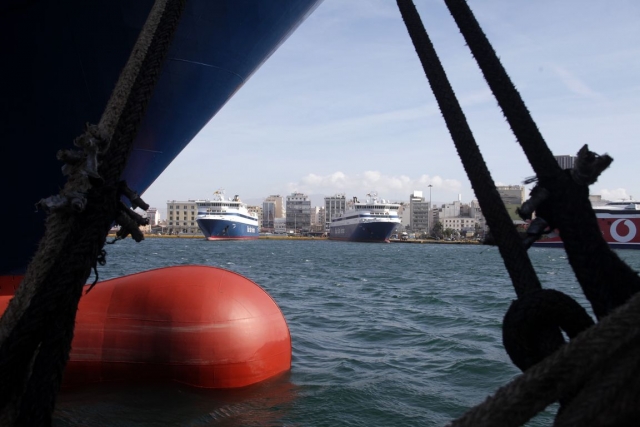Title photo: ethnos.gr
Anastasia Balezdrova
13.4 billion euro was the contribution of Greek shipping to Greece’s gross domestic product (GDP), which is almost 7% of its total value, as shown by a study carried out and presented in Athens by the international consulting firm Boston Consulting Group (BCG).
The analysis shows that the direct contribution was almost 7.6 billion euro, or 3.5% of GDP, 6.5 billion euro of which were the product of ocean shipping. The indirect contribution of the shipping industry and the money that goes to other professional service providing groups amounted to 2.3 billion euro.
“Shipping is one of the Greek business sectors with global competitive advantage. It is indicative that the average operating cost of the Greek-controlled fleet is 23% lower than the global average. This is an important message signalling that additional investments in the sector can be attracted; this is a key priority for the economic recovery,” Camille Egloff-Ghicas, Partner and Head of BCG SEE Shipping Practice stressed.

She pointed out that the 3,700 Greek ships comprise 16% of the world fleet and 40% of the European. The number of people employed in shipping is 200,000, or 4.5% of workers in Greece.
"In 2012, shipping revenue amounted to 12 billion euro whereas tourism revenue was 10 billion euro," said Egloff-Ghicas. At the same time, however, she added that this amount does not remain in Greece. "Part of the money is used outside the country, for the purchase of new ships from foreign shipyards, for example, whereas other parts are being invested abroad, as investment opportunities in Greece are limited."
However, experts say that the shipping industry invests in other important sectors of the Greek economy, such as energy, transport, construction, banking, tourism, technology and retail industries, thus further contributing towards the development of the Greek economy.

The shipping companies, the great majority of which are run by families with a long tradition in shipping, are highly involved in charity and foundations bearing the names of the Onassis, Niarchos, Evgenidis, Latsis, Lemos, Laskaridis, Pateras, Tsakos families and others were given as examples. According to BCG’s experts, the amounts for charity are not included in the figures presented.
In conclusion, they stated that the shipping industry could become the main driver of the Greek economy and offered five concrete examples of best practices on a global level, which could increase its contribution, namely:
- To include shipping in the long-term development policy of the country, following the example of Sweden. Most recently, the government in Stockholm has announced an action plan in order to increase the competitiveness of Sweden’s shipping industry in the international market.
- To simplify the procedures for starting a business and to reduce bureaucracy, like in Singapore, which has introduced a constantly operating electronic system.
- To promote a stable and competitive legal framework in order to attract investment for the creation of marine bases, following the example of Malta, which is stimulating the increase in the number of new ships sailing under its flag and, as a result, its shipping register is the largest in Europe.
- To increase the number of new students at maritime schools in order for the number of Greeks employed in the sector to increase. The practice comes from the UK, which is financing the maritime schools. As a result, the number of students in maritime academies has doubled over the past ten years.
- To improve the quality of education and to establish private maritime schools, following the example of the Philippines, which is a world leader in the training of maritime personnel and which follows international standards.
BCG said that it had financed the study with its own funds and without the involvement of shipping companies. The company has sent the results to Prime Minister Antonis Samaras and to the Ministers of Development and Shipping in order for them to take measures to stimulate the profitable business.
With regard to the comparison between the contribution of shipping and tourism to the Greek economy, it is worth noting the widely discussed fact that tourism revenues are shared between many different companies in the services sector whereas revenues from shipping go only to their owners.